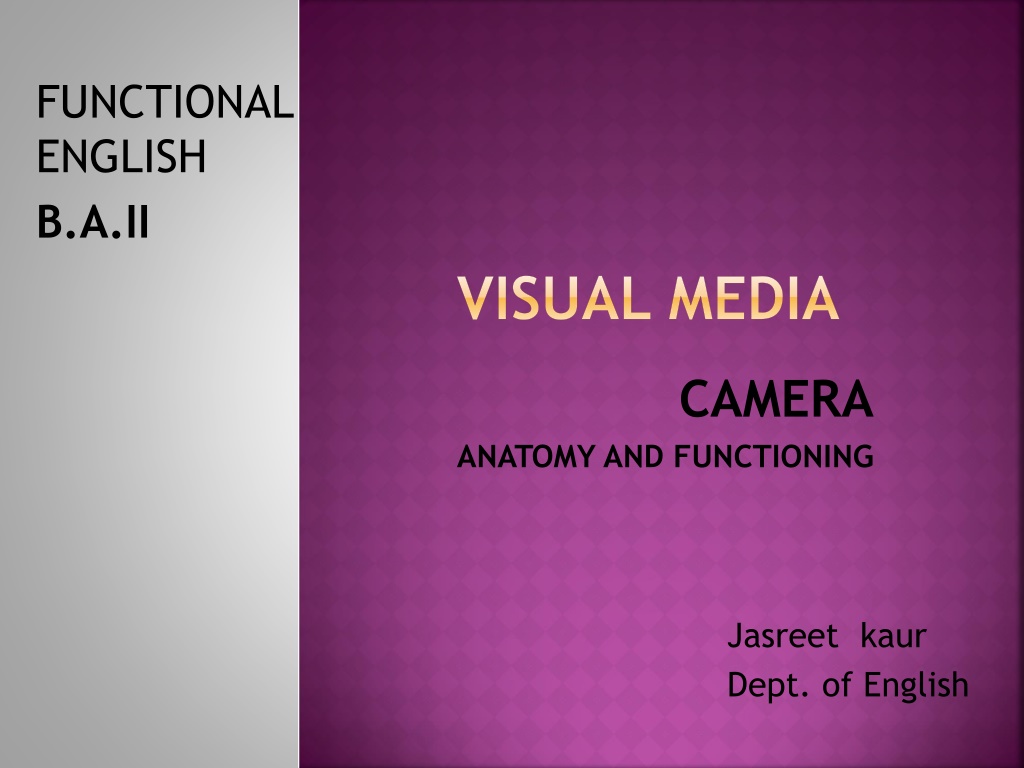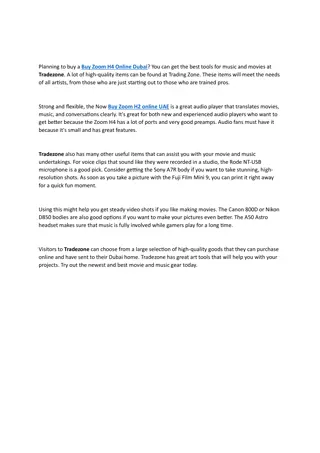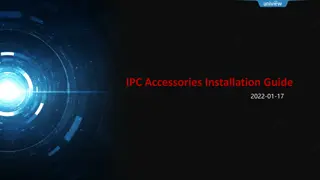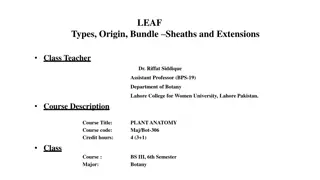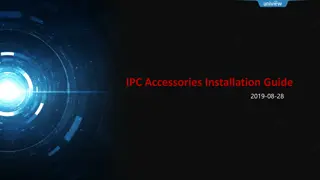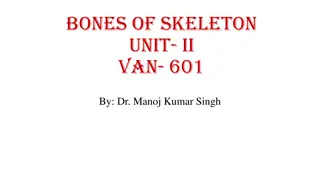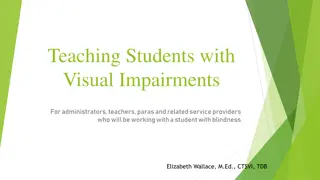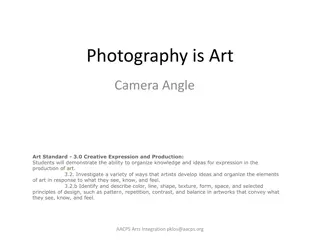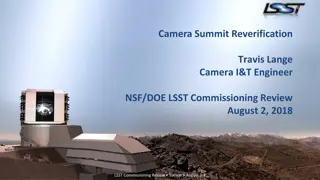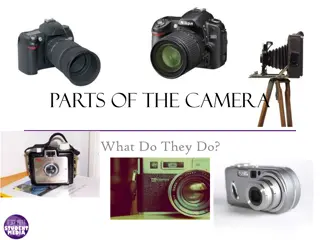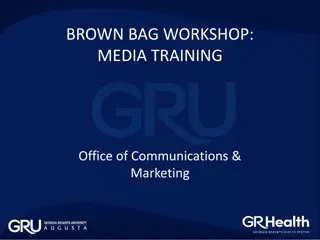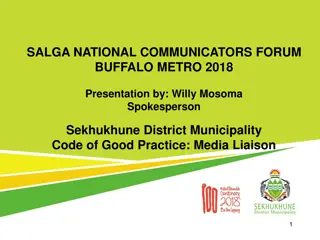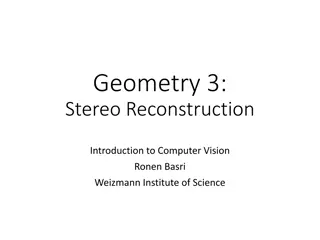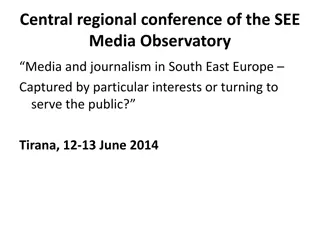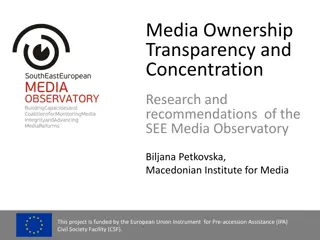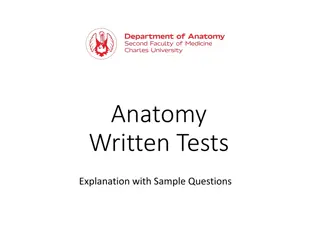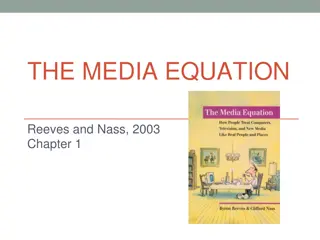Understanding Visual Media: Camera Anatomy and Functioning in English Department
Dive into the realm of visual storytelling through the lens of a camera in the field of English with a focus on the anatomy and functioning of cameras. Explore the imperative role of visual thinking for scriptwriters, the evolution of video cameras, electronic news gathering techniques, working principles of cameras, CCD technology, and the significance of viewfinders in capturing compelling imagery.
Download Presentation

Please find below an Image/Link to download the presentation.
The content on the website is provided AS IS for your information and personal use only. It may not be sold, licensed, or shared on other websites without obtaining consent from the author. Download presentation by click this link. If you encounter any issues during the download, it is possible that the publisher has removed the file from their server.
E N D
Presentation Transcript
FUNCTIONAL ENGLISH B.A.II VISUAL MEDIA CAMERA ANATOMY AND FUNCTIONING Jasreet kaur Dept. of English
it is imperative for the script writer ( TV) to learn to think visually. Camera is the visual navigator Images are shown as captured by the camera.
VIDEO CAMERAS Available in various shapes and sizes Combo Camera includes video track recording (VTR) system Beta Cam SP Digital is the most sophisticated camcorder
electronic news gathering means anything from a lone reporter taking a single camcorder out to get a story, to an entire television crew taking a satellite truck on location to do a live report for a newscast.
Contd o Reporters on the ENG are equipped with live microwave and/or satellite trucks o Recorded graphics and sounds are transmitted to the studio o They are able to show live what is happening& o Bring the dramatic news events to the audience
Working of a camera oLens system captures the image oWhich is converted into electrical signal oDecoded and displayed as optical signal
CCD CAMERAS o CCD (Charged Couple Device) imager chip is a major technology for digital imaging. o CCDs are widely used in professional, medical, and scientific applications where high-quality image data are required.
o Early sensors were video camera tubes o a modern one is charge-coupled device (CCD) o or a complementary metal oxide semiconductor (CMOS)active-pixel sensor.
VIEWFINDER oA viewfinder is what the photographer looks through to compose, and in many cases to focus the picture oViewfinders can be optical or electronic o EVF is a viewfinder where the image captured by the lens is projected electronically onto a miniature display.
CONTD.. VIEWFINDER oIndicates deficiencies of camera shots (light/ video strength/ reception/ qualities of Batteries ) o Guides the cameraperson on the technical and aesthetic aspects o May not get details because the image is very small
ZOOM LENS o Can be zoomed out to give wider coverage o Can be zoomed in to give narrower coverage o Brings the object closer and magnifies it
LENS APERTURE o Disc shaped focus control called the lens aperture or iris o It helps achieve finer/ sharper images o Iris diaphragm determines the brightness of the image
Battery requirements of a video camera o 12- volt dc: Which can be drawn from a car battery, a portable VTR, internal battery, battery belt, Shoulder pack, an AC power adapter to draw from the mains in an indoor studio
TRIPODS Cameras mounted on the tripods can be moved left and right The process is called trucked
A cinematographer is an artist whose shots must be o aesthetically attractive o technically accurate & o appropriate within the context
